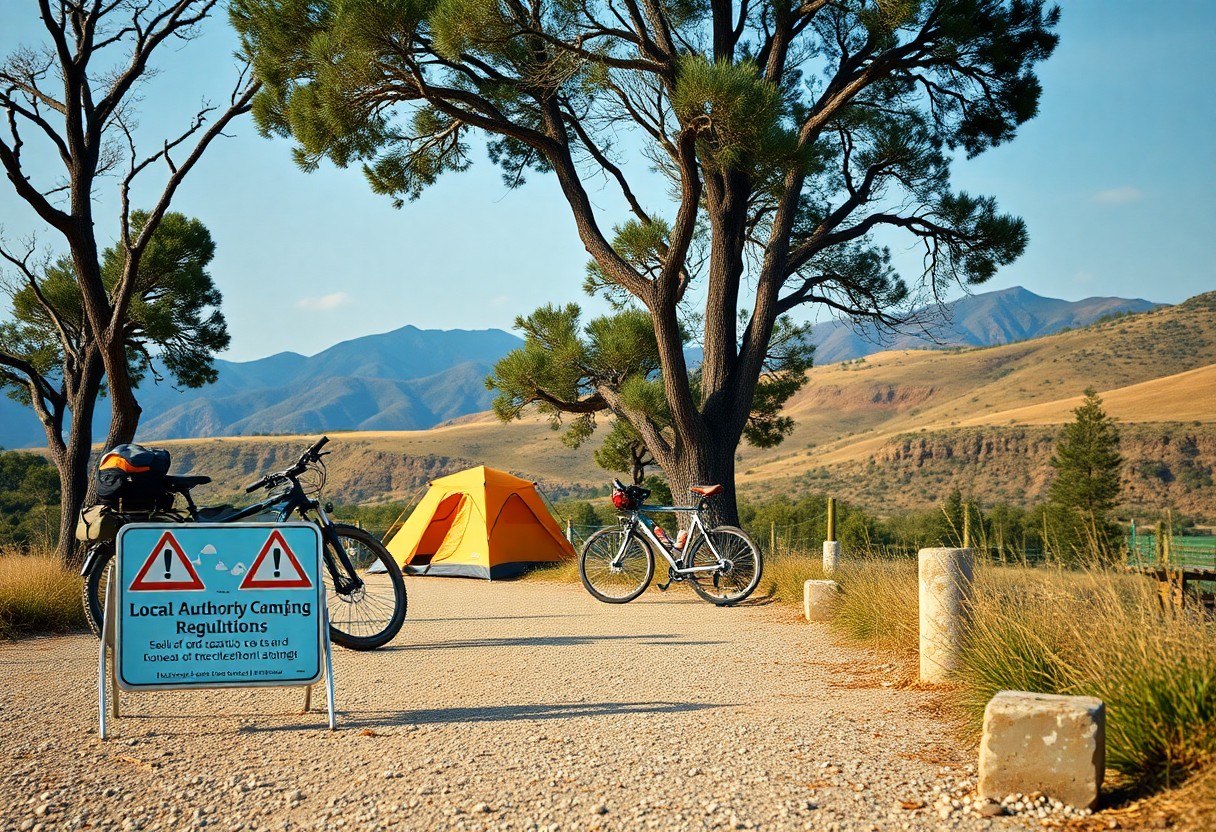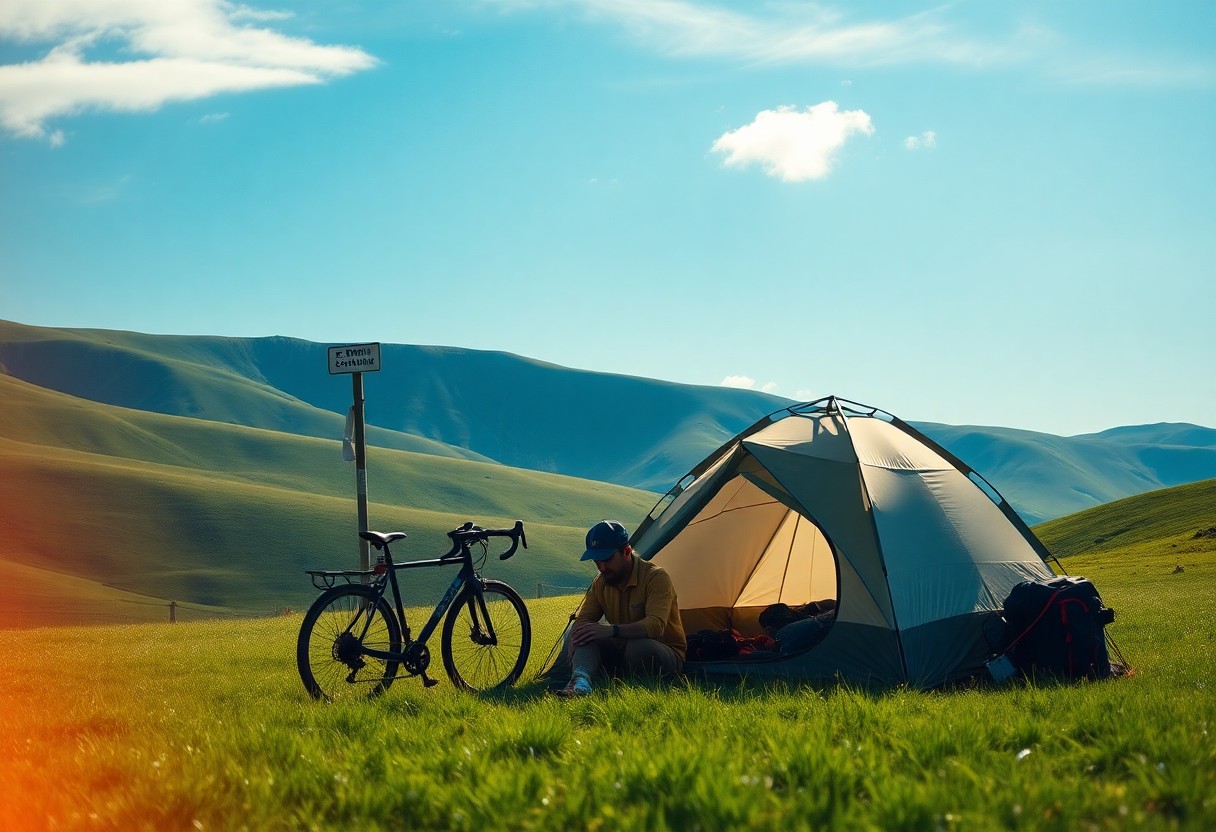There’s a growing trend among adventurers like you who seek the thrill of wild camping while bikepacking across the stunning landscapes of the UK. However, understanding the legalities surrounding this practice is important, as it varies significantly by location. In some areas, wild camping is permitted, offering you unparalleled freedom, while in others, you could face hefty penalties for camping without permission. This post will probe into the dos and don’ts of wild camping, ensuring you can enjoy your journey responsibly and without legal repercussions.
The Legal Landscape of Wild Camping in the UK
Navigating the legalities of wild camping in the UK can be perplexing, with regulations varying significantly across different regions. England and Wales generally deem wild camping illegal without landowner permission, whilst areas such as Scotland allow it under the Land Reform (Scotland) Act 2003, provided you observe the Scottish Outdoor Access Code. Understanding these distinctions is necessary for ensuring you can enjoy your bikepacking adventure without facing fines or potential legal issues.
National Parks and Access Land Regulations
In National Parks and designated access lands, the regulations governing wild camping can be more lenient. For instance, in some areas of Snowdonia and the Lake District, wild camping is tolerated in specific zones, provided you adhere to the “Leave No Trace” principles. However, in places where it’s prohibited, you may encounter stricter enforcement, so it’s wise to research local guidelines before setting up camp.
Common Misconceptions about Trespassing
Many individuals mistakenly believe that camping on private land means they can simply pitch their tent as long as they do not see the landowner. In reality, trespassing on private property can lead to hefty fines or even criminal charges, despite intentions to camp peacefully. Understanding the boundaries of lawful camping ensures a safe and enjoyable experience while protecting the rights of landowners.
The confusion surrounding trespassing often stems from a lack of awareness about land rights and access laws. For example, it’s a common myth that you can camp anywhere as long as you’re not causing damage or making a nuisance. In fact, landowners maintain the right to remove trespassers, regardless of their camping etiquette. Familiarising yourself with local laws and obtaining permission from landowners not only prevents legal repercussions but also fosters a respectful relationship with the community and its resources.

The Role of Local Authorities in Wild Camping Enforcement
Local authorities play a significant role in enforcing wild camping regulations across the UK. Their policies often reflect the needs and conditions of their specific areas, leading to a patchwork of rules that can either encourage or discourage wild camping. In some regions, councils adopt a strict approach, instituting fines and prohibiting overnight stays, while others may take a more welcoming stance, recognising the benefits of tourism and outdoor activities. This inconsistency can create confusion for bikepackers planning their routes.
Varying Policies Across Regions
Diverse policies on wild camping are evident throughout the UK, with some regions, like Scotland, allowing it under the Land Reform (Scotland) Act 2003. In contrast, areas such as the Lake District impose greater restrictions aimed at protecting the environment and local communities. These differences underscore the importance of researching the specific regulations applicable when bikepacking across regions, ensuring you don’t inadvertently flout local laws.
How Local Attitudes Shape the Legal Framework
Local attitudes towards wild camping significantly influence the legal landscape. In communities that see tourism as a vital economic contributor, there tends to be a more lenient approach towards wild camping. Conversely, in areas facing issues with litter or damage from irresponsible campers, residents often advocate for stricter enforcement. Engaging with local communities and respecting their customs can lead to a more harmonious relationship between bikepackers and residents, fostering a more positive environment for future camping experiences.
When local attitudes lean towards a supportive view of wild camping, authorities may implement educational campaigns aimed at promoting responsible practices, thus enabling a sustainable coexistence between adventurers and locals. Successful initiatives have included signage that educates on Leave No Trace principles and collaborative efforts to maintain public spaces. In contrast, negative sentiments can lead to calls for harsher regulations, highlighting the need for you to approach wild camping with respect and mindfulness of the areas you traverse.
The Impact of the Right to Roam Legislation
The Right to Roam legislation greatly influences your wild camping experience in the UK, as it defines where you can go without seeking explicit permission. This legislation allows you to access vast areas of land across England and Wales, provided you stay on designated paths. However, there are specific limitations on camping itself, often requiring that you pitch your tent only in specific areas or with permission from the landowner.
Historical Context of Access Rights
Access rights in the UK have evolved significantly, with the Countryside and Rights of Way Act 2000 being a major milestone. This legislation aimed to enhance public access to the countryside, allowing you to roam freely on mapped areas while promoting responsible use of land. The introduction of such rights marked a shift in attitudes towards outdoor recreation and public enjoyment of natural spaces.
Current Developments and Debates
Ongoing discussions around access rights and wild camping reflect the complexities of balancing environmental concerns and public usage. Recent debates have highlighted the need for clearer regulations, particularly about the increasing popularity of bikepacking and wild camping among adventurers like yourself. Some conservationists argue for stricter guidelines to protect sensitive areas, while advocates for open access stress the importance of freedom to explore.
Recent developments indicate a growing interest in revising existing laws, especially in response to the surging number of cyclists and campers seeking adventure. Initiatives, such as local partnerships between councils and outdoor organisations, aim to promote sustainable practices while enhancing access. This evolving landscape is further complicated by pressures from landowners advocating for stricter controls and conservation groups fighting for your right to explore. Engaging in these conversations can help shape a future where you can enjoy wild camping and bikepacking legally and responsibly.
Practical Tips for Responsible Wild Camping
Before heading out, ensure you practice responsible wild camping. Choose a discreet location that is away from paths, roads, and the homes of locals. Keep noise levels low and leave no trace, taking your rubbish with you. Be respectful of wildlife and local flora by camping on durable surfaces. Consider timing your visit to avoid peak seasons to minimise your impact. Engaging in conversations with local landowners can also reveal if camping is permissible on their land. Recognising these practices will enhance your experience while minimising disruption to the environment.
How to Camp Legally and Respectfully
Engaging in wild camping within the UK requires a strong sense of respect towards the land and its owners. Always seek permission from landowners when possible, particularly in areas outside of Scotland where laws are stricter. Familiarise yourself with local regulations and follow the Leave No Trace principles to ensure your camping does not negatively impact the natural surroundings. Following established paths while hiking to your campsite can also reduce erosion and protect local wildlife habitats.
Essential Gear and Preparation for Bikepackers
Your gear plays a vital role in ensuring a successful bikepacking trip. Prioritise lightweight equipment that can withstand various weather conditions. Items such as a reliable tent, sleeping bag, and portable stove should be compact and easy to pack. Additionally, remember to include ample food and water supplies, along with first-aid crucials and navigational tools. Preparing effectively can greatly improve your comfort and safety while camping in nature.
Extending upon the crucials, consider investing in duralumin tent pegs which offer lightweight strength and resilience against wind. A sleeping mat is invaluable, providing insulation and cushioning for better sleep. Furthermore, packing a multi-tool can prove crucial for quick repairs on both your bike and camping gear. Additional gear, such as reflective clothing and lights, enhances visibility for safety after dark. Prepare your route in advance, including potential campsites and emergency exits, as proper knowledge significantly complements your gear.
Client Perspectives: Experiences from the Wild
Your experiences while wild camping can significantly shape your perspective on its legality. Many bikepackers find joy in the freedom of camping under the stars, often sharing stories of stunning landscapes and peaceful nights. From the rugged Highlands to serene coastal paths, these adventures offer a unique connection with nature. While the thrill is undeniable, the varying legalities across regions can be a source of confusion and caution.
Testimonials from Fellow Bikepackers
Fellow adventurers often recount their wild camping tales with a sense of camaraderie, celebrating the spirit of exploration. One bikepacker shared, “Waking up to the sound of a babbling brook was magical, but I made sure to camp discreetly and left no trace.” Their experiences highlight the balance between adventure and adherence to local regulations, reinforcing the need for awareness while enjoying the wild.
Balancing Adventure with Compliance
A key aspect of successful wild camping lies in striking a balance between the thrill of adventure and compliance with local laws. Many bikepackers adopt a philosophy of ethical exploration, choosing low-impact camping spots and respecting landowner rights. This approach not only avoids potential fines but also preserves the beauty of the natural environment for future generations.
Adhering to local regulations enhances your overall experience. For instance, planning your route ahead can help you identify permissible camping areas and avoid regions with stricter rules. You might consider joining forums or groups dedicated to bikepacking, where seasoned adventurers share not only their secret spots but also tips on maintaining respect for nature and local communities. Such proactive measures ensure that you revel in the adventure without compromising your peace of mind.
Conclusion
To wrap up, wild camping while bikepacking in the UK is largely dependent on your location. In Scotland, you can enjoy the freedom to camp responsibly, provided you adhere to the established guidelines. However, in England and Wales, it is advisable to seek permission from landowners to avoid potential legal issues. Always ensure you leave no trace and respect the natural surroundings to enhance your experience and that of others. By understanding the legalities, you can fully enjoy your bikepacking adventures while camping in the great outdoors.
